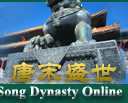|
LEAD
Vision, Mission, Objectives, Principles & Code of Conduct
LEAD International
and the LEAD Member Programs subscribe to the vision and mission
of LEAD as set out below:
Vision
LEAD International's guiding philosophy is rooted in the ethical
value of caring for our planet and all life that it sustains
now and into the future. LEAD is committed to making a contribution
toward the creation of a global society based on mutual obligations
and responsibilities in which development patterns will satisfy
the shared needs and aspirations of all people and respect
the Earth’s living systems and natural resources.
Mission
LEAD's mission is to create and sustain a global network of
leaders who are committed to promote change towards patterns
of economic development that are environmentally sustainable
and socially equitable.
How we accomplish
our mission
* LEAD fosters
change by identifying outstanding men and women at the mid-career
level from around the world representing a range of backgrounds
and provides them with the training designed to enhance their
leadership capabilities and knowledge of issues related to
environment and development.
* LEAD provides
learning opportunities based on the best available current
thinking, information, expertise and adult learning techniques.
A two-year training program designed to complement professional
commitments allows participants the opportunity to reflect,
conceptualize and make decisions related to the transition
to greater environmental and social sustainability.
* LEAD supports
the network of its alumni through a Fellows Program.
* LEAD fosters
a learning environment based on mutual respect, equal opportunity
and transparency that seeks to encourage long-term solidarity
and support among participants. LEAD actively upholds the
principles of the freedom of association, expression, information,
communication and movement without discrimination on the basis
of race, religion, language or gender.
* LEAD guides its
participants towards solving complex problems related to the
environment and development, challenges them to work co-operatively
to look beyond the limits of their own disciplines, and encourages
them to become agents of change in their workplaces, communities,
countries and beyond.
* LEAD has established
an international network of support by providing members of
the LEAD family with links to each other and to the environment
and development communities at large through an Internet based
computer network.
* LEAD has created
an effective institutional framework to carry out its mission
that has uniformly high standards, but also reflects different
experiences, practices and cultures.
LEAD's mission
is translated into action through a set of Principles and
a Code of Conduct:
Principles
* Foster the rational
and equitable use of renewable and non-renewable resources
on a local, national and global scale.
* Preserve the
options available to future generations to use natural resources
to meet their needs.
* Promote a better
understanding of sustainable development and implement these
ideas in everyday life.
* Expand and exchange
knowledge and experience about sustainable development.
* Incorporate the
principles of sustainable development into professional activities
and at home.
* Encourage the
building of human capacities through education and training
on issues related to sustainable development.
Code of Conduct
All Members of
the LEAD family (Associates, Fellows, staff, International,
National and Regional Board members) are committed to the
LEAD Code of Conduct:
* Be respectful
and tolerant in their relations with each other irrespective
of race, religion, culture, language or gender.
* Participate in the program's activities in a spirit of altruism.
* Collaborate with one another to help promote the general
objectives of the LEAD program.
* Abide by the general rules and regulations of all partner
institutions involved in the implementation of the program
nationally, regionally and internationally.
* Refrain from undertaking any action that may harm the legitimate
interests of any partner institution.
Revised, October
1998
|



